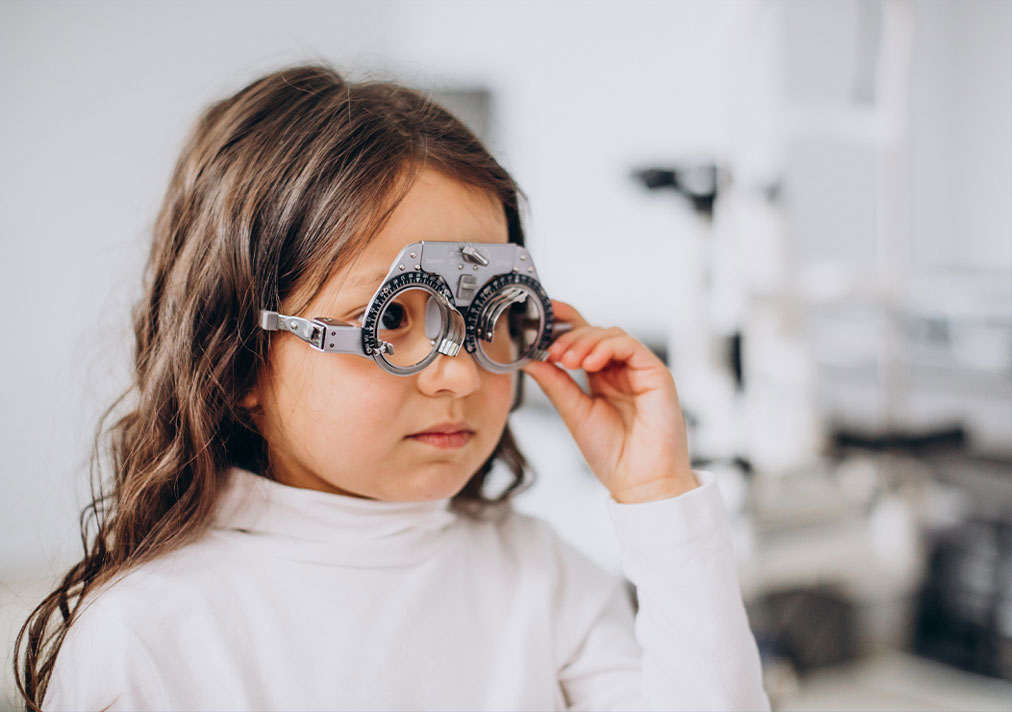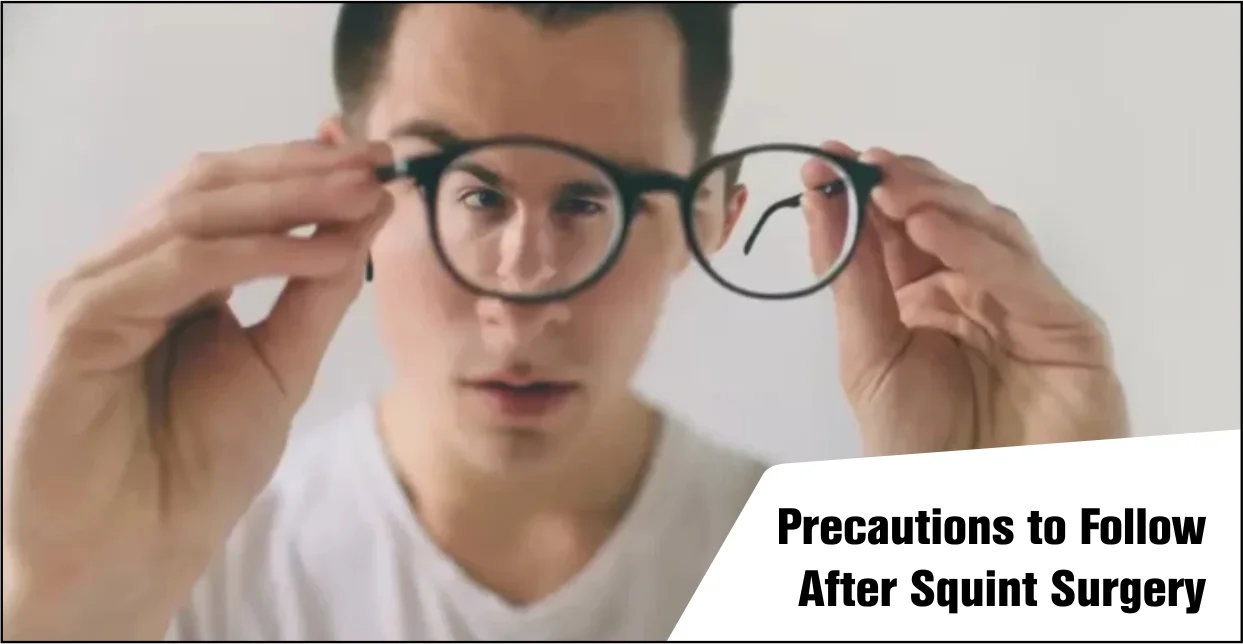Squint surgery, medically known as strabismus surgery, helps correct misalignment of the eyes. It is an effective procedure that improves both vision and appearance. However, the recovery process plays a crucial role in ensuring the success of the surgery. Following proper precautions after squint surgery can make a significant difference in healing and achieving the best results. Here’s what you need to know about post-operative care and steps to protect your eyes after squint surgery.
Understanding Recovery Post-Surgery
Recovery after squint surgery generally takes a few weeks. While the procedure itself is straightforward, the eyes require time to heal completely. Post squint surgery, you may experience mild discomfort, redness, or a watery sensation in the eyes. These are normal and should gradually improve.
Surgeons at Eye Q Eye Care Hospital will provide specific instructions regarding eye drops, medications, and activities to avoid. Adhering to these guidelines is essential for smooth healing.
Key Precautions to Follow After Squint Surgery
Here are some key precautions to keep in mind:
-
Avoid Rubbing Your Eyes
Post-surgery, your eyes might feel itchy or uncomfortable, and this is a common experience. It is essential to resist the urge to rub or touch them because doing so can disrupt the delicate healing process. Rubbing can dislodge any sutures or interfere with the healing of incisions, leading to potential complications. Moreover, your hands carry bacteria and germs that can cause infections when transferred to your sensitive post-surgery eyes.
-
Use Prescribed Eye Drops
Eye drops prescribed by your doctor help in reducing inflammation and preventing infections. Follow the dosage schedule carefully. Skipping doses or improper use can lead to complications or prolong the recovery period. Always wash your hands before administering the drops to avoid introducing bacteria into your eyes. If you feel unsure about how to administer the drops, ask a family member for assistance or consult your doctor for guidance.
-
Keep the Eyes Clean
Maintaining proper hygiene around your eyes is vital to prevent infections and ensure a smooth recovery. Use a clean, soft cloth or tissue to gently wipe away any discharge that may accumulate around your eyes. This discharge can be a normal part of the healing process, but it needs to be managed carefully. Avoid using unwashed hands, rough materials, or any items that might introduce bacteria or irritate the sensitive areas around your eyes. Always make sure your cleaning materials are clean, and practice good hygiene to keep the healing process on track.
Protecting Your Eyes During Daily Activities
Ensuring proper protection of your eyes during daily activities is crucial for a smooth recovery after squint surgery. Here are some important precautions to follow:
-
Avoid Strenuous Activities
Physical activities like heavy lifting, running, or playing sports should be avoided for at least two to three weeks. These activities can put undue pressure on your eyes, which are in a delicate state post-surgery. Straining the eyes during recovery can lead to complications such as increased intraocular pressure, which can disrupt the healing process and even cause damage to the surgical site. Instead, focus on light activities like gentle walking, which allows you to stay active without overexerting your eyes.
-
Limit Screen Time
Excessive use of mobile phones, computers, or televisions can strain your eyes, which are already sensitive and healing after surgery. The blue light emitted from screens can cause eye strain, dryness, and discomfort. While you may use these devices for short durations, it is important to take frequent breaks to avoid discomfort.
-
Be Cautious Outdoors
When stepping outside, wear sunglasses to protect your eyes from dust, wind, and bright sunlight. UV rays and environmental particles can irritate the eyes and delay healing. Sunglasses with UV protection help shield your eyes from harmful rays that can cause discomfort and slow down the recovery process.
Food and Nutrition for Faster Recovery
Eating a nutritious diet can support the healing process. Include foods rich in vitamins A and C, as they promote eye health. Examples include:
- Vitamin A: Carrots, spinach, sweet potatoes, and eggs.
- Vitamin C: Oranges, strawberries, guava, and tomatoes.
Stay hydrated by drinking plenty of water, as dehydration can affect overall recovery.
Recognizing Warning Signs
While mild discomfort and redness are common after squint surgery, certain symptoms may indicate complications. Contact your doctor immediately if you notice:
- Severe Pain in the Eyes: Sharp or intense pain that doesn’t subside and feels worse than typical post-surgery discomfort.
- Sudden or Increased Swelling Around the Eyes: Rapid or significant swelling that is more than mild puffiness, indicating possible infection or reaction.
- Persistent or Unusual Discharge: Continuous discharge, particularly if it’s thick, yellow, or green, suggesting an infection.
- Decreased Vision or Blurred Eyesight That Worsens: Vision that deteriorates or becomes increasingly blurred, rather than gradually improving, indicating a potential issue with the healing process.
How to Take Care While Sleeping
Proper care during sleep can prevent strain on your eyes. Here are some tips:
-
Sleep Position
Avoid sleeping on the side of the operated eye. This position can exert pressure on the eye, potentially causing discomfort or even complications in the healing process. Instead, sleeping on your back is generally recommended as it keeps your head in a neutral position and prevents direct pressure on the eyes.
-
Pillow Support
Use extra pillows to keep your head elevated. Elevating your head while sleeping helps reduce swelling around the eyes by promoting better fluid drainage. Aim to keep your head elevated at a 30 to 45-degree angle.
-
Avoid Pressing on Eyes
Be cautious not to press against your eyes while adjusting your sleeping position. Even unconscious movements can put pressure on your eyes, so it’s important to create a safe sleep environment. Use pillows to create a barrier around your head, ensuring that you don’t roll over onto the operated eye during the night.
Children’s Post-Surgery Care
If the surgery is performed on a child, extra attention is required. Children may not fully understand the importance of following precautions, so parents or caregivers need to supervise their recovery.
- Keep their nails trimmed to prevent accidental rubbing of the eyes.
- Engage them in quiet activities to avoid strain.
- Follow up with the doctor regularly to monitor their progress.
Follow-Up Appointments
Regular follow-up visits are an essential part of recovery. During these check-ups, your doctor will assess the healing process and check for any complications. These appointments also provide an opportunity to discuss any concerns or symptoms you may have.
Dos and Don’ts After Squint Surgery
Understanding what to do and what to avoid after squint surgery is crucial for a smooth recovery. Here’s a list of important Dos and Don’ts to keep in mind:
Dos
- Wash your hands before applying eye drops or cleaning the eyes.
- Wear protective eyewear, if recommended by your doctor.
- Follow the medication schedule strictly.
Don’ts
- Don’t swim or expose your eyes to water bodies for at least 3-4 weeks.
- Avoid makeup or cosmetic products around the eyes until the doctor gives clearance.
- Refrain from smoking or exposure to smoky environments, as these can irritate the eyes.
Psychological and Emotional Recovery
For some patients, adjusting to the change in vision or appearance can take time. Discuss your feelings with your doctor or loved ones, and remember that the benefits of the surgery will become more noticeable as your eyes heal.
Conclusion
Squint surgery can make a positive difference in both vision and confidence. However, proper post-operative care is crucial for achieving the best results. By following these precautions and your doctor’s advice, you can ensure a smooth recovery.
If you have recently undergone squint surgery or are planning the procedure, Eye-Q Super-Speciality Eye Hospitals in India are here to assist you with expert care and guidance. Book an appointment today to learn more about how we can support your eye health and recovery.




